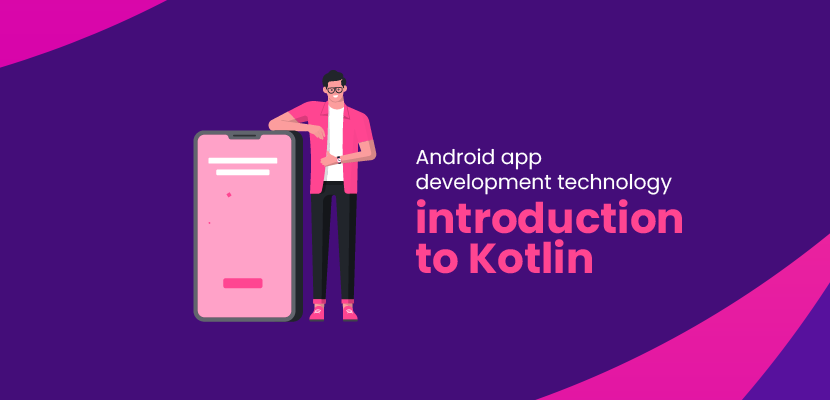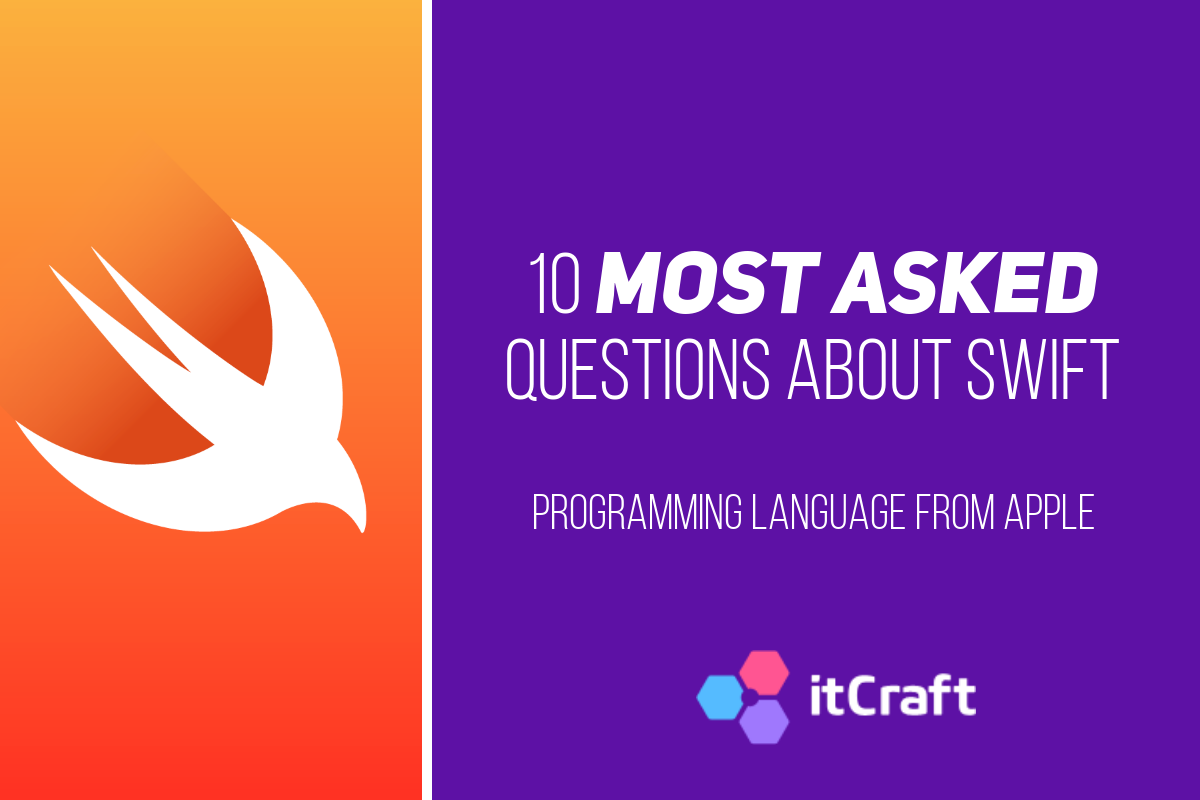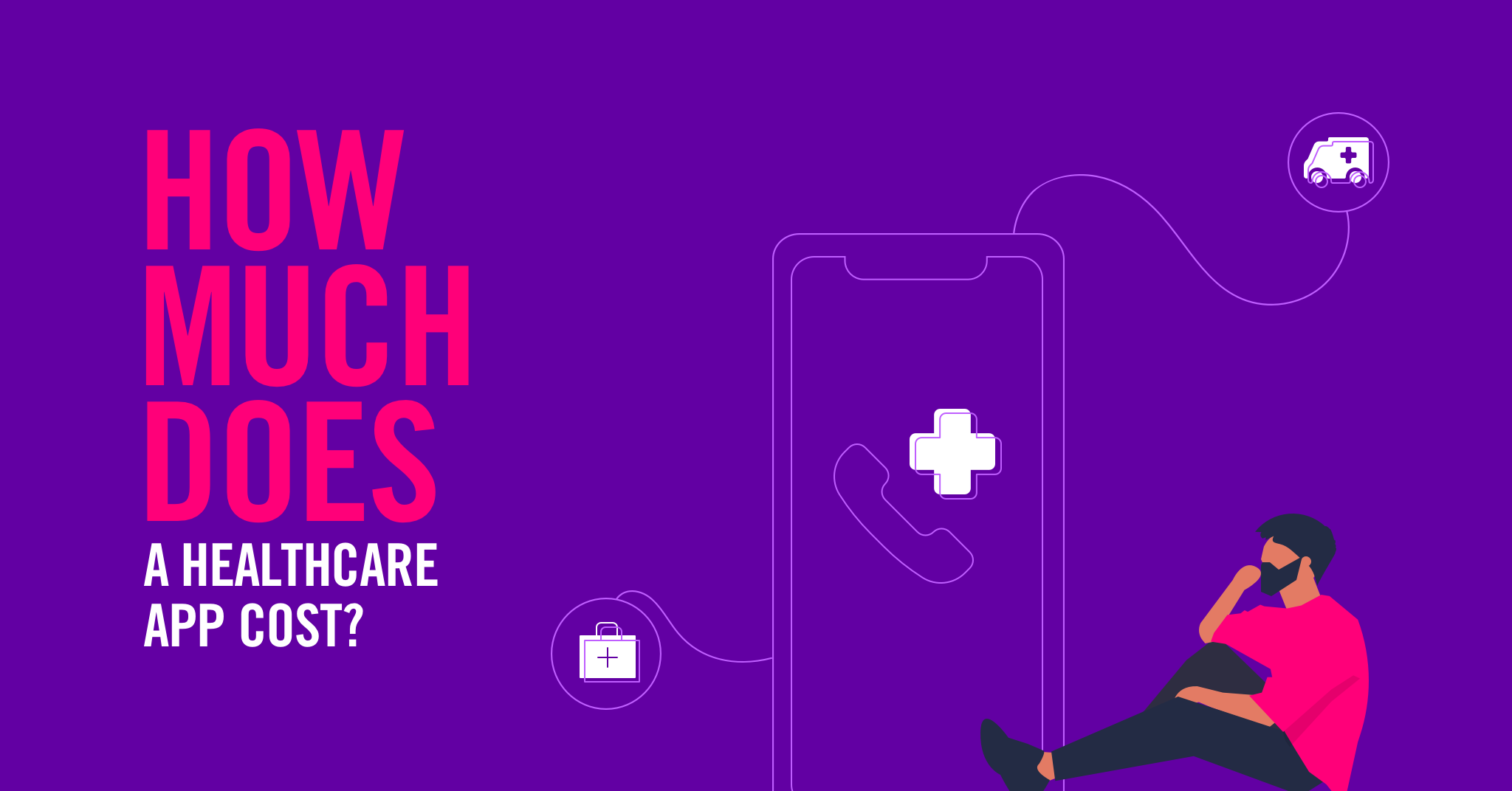Android app development technology – introduction to Kotlin

Alexa Trachim

We’ve been discussing native iOS technology like Swift and cross-platform frameworks like Flutter or React Native on our blog already. Now it’s time for Kotlin programming language – a native environment dedicated to developing Android apps. This mobile operating system is highly appreciated in Europe. Unlike Apple’s iOS, Android is available in thousands of devices produced by different brands. That’s why creating mobile products for it might be a little bit more complicated – especially when it comes to quality assurance.
Table of contents
- What is Kotlin?
– What is Kotlin used for?
– How Kotlin works? - Is Kotlin easy to learn?
– How to learn the Kotlin language? - Java to Kotlin
- Why use Kotlin?
- Have your Android app developed with Kotlin!
Let’s see what Kotlin exactly is and how it works.
What is Kotlin?
Kotlin programming language is an open-source technology used mostly for native Android mobile development, but not only. Worked on since 2011 and premiered in 2016 as an alternative to Java, it is a free-to-use environment that allows developers to functional programming principles, as well as object-oriented constructs. In 2017 Google announced first-class support for Android and since 2019, Kotlin became a prefered language for this platform.
When compared with Java, Kotlin is way more condensed when it comes to code – it requires up to 40% fewer code lines to achieve similar results. Kotlin allows to facilitate the creation of DSL but also to write expressive code. At the same time, Kotlin is entirely compatible with Java, which gives adopting developers a possibility to create interactions between Java and Kotlin code easily. The IDE has a built-in automated converter between these two languages to simplify migration.
Some features included in Kotlin are:
- Null-safety
- Smart casting
- Lambdas with receivers
- Extension functions
- Higher-order functions
While working on this article, the current version is Kotlin 1.3.72 from April 15, 2020.
What is Kotlin used for?
We usually focus on Kotlin for Android developers, but it has many more capabilities. Be it server-side or client-side web development, it is quite a universal programming language. Kotlin is used for web development, desktop development and more. The creators are even working on iOS and macOS support, which would make using Kotlin genuinely versatile.
Still, we usually associate using Kotlin with Android native development. Apps like Evernote, Pinterest, Trello, Uber and Basecamp are successful Kotlin/Android apps.
How Kotlin works?
To use any programming language, you need IDE – an integrated development environment, which is a software app that allows developers to write software products in it. The most popular ones for Kotlin are Android Studio and IntelliJ IDEA. It can use different build tools. When it comes to compiling, it adapts to the target. Let’s see what the benefits of Android app development with Kotlin are.
Apps for Android written in Kotlin
So what can we achieve with Kotlin app development for Android?
First of all, it is a time-saving language. We spend less time writing code and on learning the code of others if there’s a need for that. Readability of Kotlin code is very pleasing and it doesn’t require as many lines as other programming languages. That also ensures safety, as less code means fewer opportunities for bugs to sneak in. The compiler detects the remaining ones. The code is very safe and reliable.
As any other major language, Kotlin was expanded continuously since the first release. By adding functional building tools and integrating it into Android Studio, it climbed into a position of being the primary environment for Kotlin Android developers in many software houses and digital companies. A large community of contributors supports the growth of Kotlin technology around the world.
Kotlin is used to write many libraries. This way, it can multiply its functionalities and become a robust tool for any kind of development – mobile, web, backend and more. Many Android libraries were adapted to Kotlin after Google announced its support for it.
You can see that Kotlin can be extremely advantageous for developers and app users. But is it easy to become Kotlin developers? We should find out.
Is Kotlin easy to learn?
One of the main reasons why Kotlin is considered a language that is easy to learn is the fact that it was inspired by other languages before it – like Java and JavaScript, C# or Scala. It is claimed that Kotlin should be especially easy to adapt to for Java developers. Although advanced functionalities can take a longer time to learn, overall, Kotlin was created to be easy to adopt.
How to learn the Kotlin language?
The main website dedicated to Kotlin – kotlinlang.org – has lots of resources for aspiring Kotlin development practitioners. It even provides a “Kotlin Playground” which is: “an online sandbox to explore Kotlin (…)”. It allows us to create code samples and test them from the browser level. It also has thorough documentation and a bunch of tutorials to learn from.
There are also books that teach Kotlin – one is even written by the members of the Kotlin team. It is called “Kotlin in Action” and it can be your first handbook if you are looking for an on-paper source of knowledge in Kotlin.
For developers who prefer online learning instead of reading books, we recommend browsing Kotlin courses that can be found, for example, on platforms like Udemy. Usually, they are lead by seasoned developers that can share their expertise and knowledge with less experienced fellow devs.
If you are thinking about learning Kotlin, go to the website we mentioned above. It has all resources mentioned and much more. You can also find out more about Kotlin’s events and a conference that integrates the global community of Kotlin enthusiasts. If you will learn to use Kotlin and you will like it – maybe you can become the next participant or even a speaker during one of these events.
Java to Kotlin
The correlation between Kotlin and Java is nothing surprising. As we said before, Kotlin for Java developers should be easy to learn and code. We should discuss a couple of dependencies between Java and Kotlin. There are whole tutorials on calling Java to Kotlin and the other way around. We won’t describe here how to do it, but you can access them on the official Kotlin website.
Kotlin can target JVM and lets the developer choose the version for execution. The compiler creates a bytecode that is compatible with Java 6, but if you want to use optimization from newer versions, then you can pick Java 8 to 13. Remember, that in this case, the bytecode might not work with previous Java versions.
You can also mix Java code into the project written in Kotlin. It’s quite easy when using the IntelliJ IDEA tool. Most of the code is converted automatically, but the developer should check it afterward and fix it if necessary.
Some developers switch Java to Kotlin, sometimes they change their mind and go back. Wondering why? That’s because they are still different programming tools that offer similar but not exactly the same sets of functionalities. Kotlin can take less time to write code, but Java offers static members, checked exceptions, non-private fields, primitive types and wildcard types.
Kotlin, on the other hand, can offer extension functions, smart casts, properties, string templates, lambda expressions, first-class delegation, primary constructors and much more. It answers issues that Java developers would encounter. In Kotlin, there are no raw types, arrays are invariant and type system can control null references.
There are probably many reasons to use one or another language, so we won’t take sides. If you already know Java, Kotlin might be one of the next steps in your development journey. If you want to develop solid Android solutions – you definitely should learn this native app development language.
Why use Kotlin?
First of all, it is a trusted technology – startups, enterprises and Fortune 500 companies invest in Android apps written in Kotlin. Google statistics disclose that more than 60% of the top 1000 mobile applications in the Play Store are built with this technology. The popularity is undeniable and since so many businesses use it, that must mean it is a reliable, robust language, right?
What do Kotlin practitioners say? Basically, they praise the concision of the code that doesn’t sacrifice safety and performance. Why is it so important? Well, the level of language conciseness influences productivity. Principles used in Kotlin for Android development allow us to build high-quality apps quickly. At the same time, with Kotlin, every line is still understandable and functional.
Functional programming is another great advantage when it comes to Kotlin. While Java is an object-oriented language, Kotlin can offer both functional and object-oriented paradigms – depending on the project and preferences. The functional type of coding also allows us to achieve simple but robust results.
One of the arguments is also that Java is merely old and we should move to new, exciting technologies. Kotlin 1.0 was released in 2016 and Java is around since the 90s. Even though each language is fixed and updated, Java is accused of being vulnerable to errors. With great functionalities, intuitive IDE tools like IntelliJ IDEA and Android Studio that can be configured within seconds and full interoperability with Java, using Kotlin seems logical and reasonable.
Have your Android app developed with Kotlin!
Hiring a Kotlin development company is a wise choice if you have a native Android app project in mind. This language is the best choice for this type of mobile applications. We recommend asking your software house of choice about Kotlin specialists and their previous projects to see what they really can achieve using this technology.
Contact us and let us know if you need any help with your Android app or any other software project. We use not only Kotlin language, but many different programming environments and frameworks that guarantee excellent results and offer scalability as well as high-performance rates. We can achieve your business goals together!



